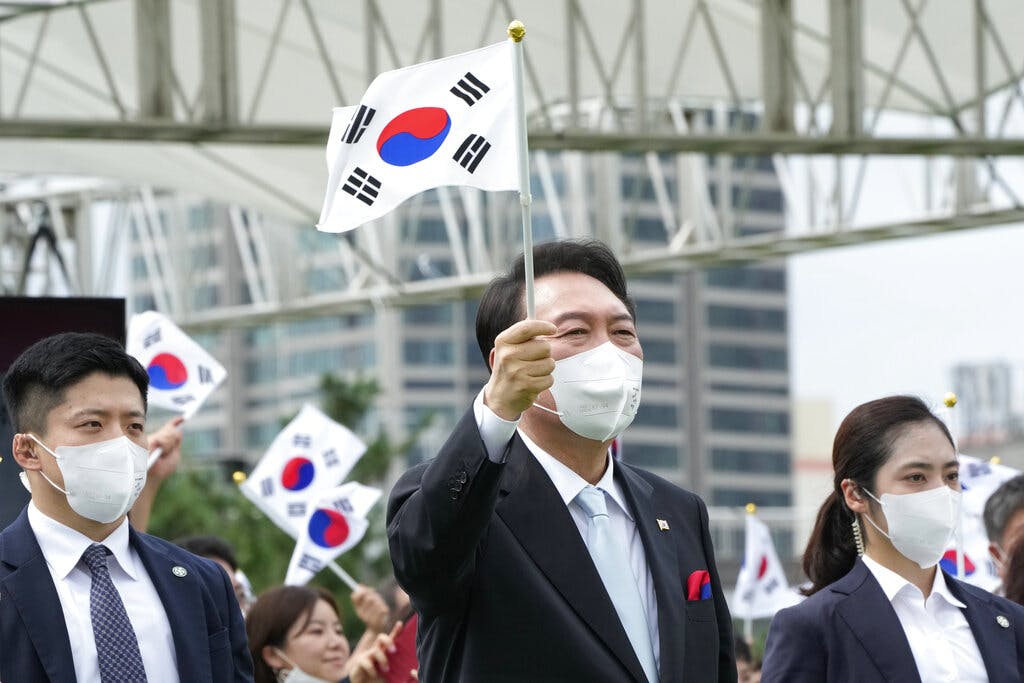Roses Are Red, Violets Are Blue — Seoul and Havana Tell Pyongyang To Stew
The Pyongyang-Havana axis appears to have collapsed with the opening, on Valentine’s Day, of diplomatic relations between Seoul and Havana.

No longer can North Korea count on unqualified support from Cuba as a Communist comrade and ally against a common foe, America. Or so it would seem since Cuba and South Korea decided on Valentine’s Day that they needed each other for the most pragmatic of reasons — trade and investment.
The office of South Korea’s president, Yoon Suk-yeol, explained the need for diplomatic relations, citing Cuba’s “significant mineral resources” that are “critical for electric battery production such as cobalt and nickel.” South Korea, said Yonhap News, is “home to three of the world’s five biggest EV battery makers.”
There’s just one catch. Yes, President Obama opened diplomatic relations with Cuba in 2015. No, Washington still imposes sanctions on a wide range of agencies, companies and products that will stop South Korea from taking advantage of all the possibilities.
In fact, just before his term expired in January 2021, President Trump designated Cuba a “state sponsor of terrorism” and imposed more sanctions. President Biden strengthened them in July 2021 in response to Cuba’s harsh crackdown on protesters and dissidents.
Seoul, though, is hoping that Washington eventually will let up on the sanctions — perhaps in response to pleas from South Korea, one of America’s strongest allies.
“We will take this opportunity of the formal diplomatic ties to lay the groundwork for gradual expansion of economic cooperation,” Mr. Yoon’s office said. He blamed sanctions for limiting direct trade into what it said was “an untapped market.”
The opening of Cuban-South Korean relations comes at a time of rising North Korean rhetoric — and missile tests — in which North Korea’s leader, Kim Jong-un, has labeled South Korea as the North’s “principal enemy.” North Korea has exported rifles and ammunition to Cuba, and Mr. Kim welcomed the new Cuban president, Miguel Díaz-Canel, to Pyongyang in 2018.
There is, however, a possible upside to Havana’s decision to have embassies in both Pyongyang and Seoul. Cuba, maintaining close ties to North Korea, could serve as a conduit or even intermediary in renewing North-South dialogue despite Mr. Kim proclaiming that further talks with Seoul are impossible.
A sign of North Korea’s desire to open up, just slightly, to its foes was a remark by Mr. Kim’s often outspoken younger sister, Kim Yo-jong, hinting at talks with Japan.
North Korea and Japan “can open a new future together,” Pyongyang’s Korean Central News Agency quoted her as saying, “through its courteous behavior and trustworthy action on the basis of courageously breaking with anachronistic hostility and unattainable desire and recognizing each other.”
She said, however, that Japan had to abandon what she called “a stumbling block” namely “the already settled abduction issue” — a reference to Japan’s claim that North Korea still holds a number of Japanese citizens abducted in the 1970s and 1980s off beaches in Japan.
Mr. Kim’s father, Kim Jong-il, freed a number of them between 2002 and 2004 along with an American soldier, Charles Jenkins, who had defected to North Korea and married a Japanese woman who had been kidnapped. She and their two daughters were also freed.
A Japanese spokesman said North Korea’s refusal to talk about more releases was “unacceptable.”

